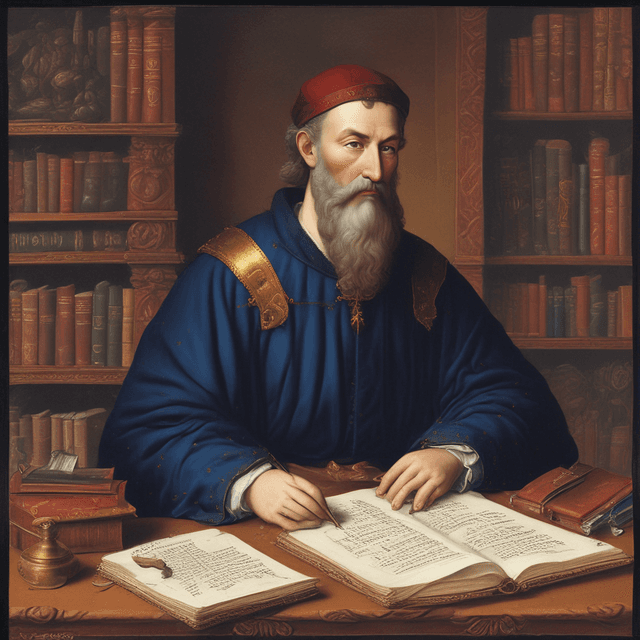
| Era | Late Roman Empire |
| Name | Boethius |
| Birth | c. 480 CE |
| Death | c. 524 CE |
| Legacy | Significant influence on medieval scholastic philosophy • Helped preserve and transmit classical learning |
| Influences | Classical Greco-Roman thought • Early Christian philosophy • Germanic philosophy |
| Occupation | Philosopher • Theologian • Statesman |
| Notable work | "The Consolation of Philosophy" |
Boethius was a Roman philosopher, theologian, and statesman who lived in the 5th-6th century CE. He is considered one of the most influential thinkers of the late classical period, bridging the cultural divide between the dying Roman Empire and the emerging medieval world.
Boethius was born around 480 CE in Rome to a prominent aristocratic family. He received a classical education steeped in the works of Plato, Aristotle, and other Greco-Roman philosophers. This intellectual foundation would shape his later writings and philosophical outlook.
In 510 CE, Boethius was appointed to the prestigious position of Quaestor (a high-ranking imperial official) under the rule of the Ostrogothic king Theodoric the Great. During his time in government, Boethius gained a reputation as a skilled administrator and defender of classical learning. He played a key role in preserving the traditional culture and institutions of the late Roman Empire in the face of the Germanic invasions.
Boethius' most famous work is "The Consolation of Philosophy", written in 524 CE while imprisoned and awaiting execution on charges of treason. In this philosophical dialogue, Boethius grapples with the problem of reconciling human free will, divine providence, and the existence of evil in the world. The text blends classical Greco-Roman thought, particularly Neoplatonism, with elements of early Christian theology and Germanic philosophy.
Other important works by Boethius include translations and commentaries on the writings of Aristotle, as well as theological treatises exploring the nature of the Trinity and the reconciliation of pagan philosophy with Christian doctrine. His systematic approach to these topics was highly influential in the development of medieval scholasticism.
Boethius' writings became foundational texts in the curriculum of medieval European universities, shaping the study of logic, rhetoric, mathematics, and the liberal arts for centuries. His integration of classical Greek philosophy with Christian theology was a major force in the Christianization of Greek thought during the Middle Ages.
Boethian ideas and methodologies permeated the works of later influential Medieval thinkers such as Augustine of Hippo, Thomas Aquinas, and Anicius Boëthius. His writings were considered indispensable for any well-rounded medieval scholar.
Boethius is remembered as one of the most important figures in the transmission of classical learning to the medieval world. His philosophical synthesis of Greco-Roman, Germanic, and Christian traditions played a pivotal role in bridging the cultural divide between the late Roman Empire and the emerging medieval era.
Boethius' ideas and writings had a profound and lasting impact on the development of liberal arts education, scholastic philosophy, and theological thought in Europe. He is considered one of the key "Fathers of Scholasticism" and a central figure in the Christianization of Greco-Roman thought. Boethian concepts and methodologies continued to shape Western intellectual life well into the Renaissance period.
Today, Boethius is revered as a seminal philosopher, theologian, and educator whose works helped preserve and transmit classical learning during a tumultuous transition in European history. His legacy continues to resonate in the modern educational system and philosophical tradition.